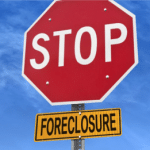Selling An Inherited Property
Selling an inherited home can be a stressful time of life. Being an heir or personal representative of an estate means that you are working to make the best decision for yourself, family, and potentially many other individuals. If real estate is part of the deceased’s estate, you have probably asked yourself “What is the best way to sell this house?”
 We are going to provide a complete list of solutions to sell your house that will help you make the right decision according to your situation.
We are going to provide a complete list of solutions to sell your house that will help you make the right decision according to your situation.
If you are unfamiliar with the probate process and want to learn more, we have a detailed explanation outlined below.
Or if you are currently in the probate process, you can skip ahead to the information on selling your inherited property.
Florida Probate Process for Real Estate
What is probate?
Probate is the process of legal ownership passing from the deceased to another individual(s).
When is probate needed for real estate?
If the deed to the property is solely in the name of the deceased (or others with Tenancy in Common), then the property will need to go through the probate process.
Probate is not needed if: The deed to the property is in the name of the deceased and wife or other names that were titled “Joint Tenants with Rights of Survivorship.” As well, if the ownership of the property was in a trust that automatically passes the beneficial interest upon death or the property was owned in a life estate, then probate is not needed.
How can I figure out what name was on the deed to the property?
You can search in Google “(County name) property appraiser.” Then locate the property record search on the property appraiser’s website. Type the property’s address into the search bar. Next you will need to find the “sales records” and click on the latest one. This will pull up the official county records with a digital version of the deed and you will be able to see the name on the deed.
*Note: Some counties do not have digital versions uploaded if they are older than 20-30 years. If so, you can call the office and ask them to pull the record for you.
How do I start the probate process?
The probate process is started when a last will and testament are deposited to the clerk of court within 10 days of the decedent’s death. If there is no will, an interested party will need to file a petition of administration to start the process and notice is given to the heirs and beneficiaries.
Who is in charge of selling the property?
If there is a will, it’ll specify who is the Personal Representative for the estate. The Personal Representative is in charge of managing the assets, paying off creditors/debts, and disposing of assets as directed by the will.
If there is no will, then the court will appoint a Personal Representative for the estate (usually a spouse or adult child of the deceased).
However, if there is homesteaded property in the estate of the deceased, then only the heir(s) can sell this property.
Who receives the sales proceeds of the property?
Again if there is a will, whoever is listed as the beneficiaries will receive the proceeds of any sales after all the debts are paid.
If there is no will, then Florida Intestate Succession Law comes into effect to decide who receives the proceeds of the estate.
When can I sell the inherited property?
You do not have to wait until probate is over to sell properties in the estate.
If there was a “power of sale clause” in the will, the Personal Representative can sell all non-homesteaded property without the permission of the court.
If there was not a “power of sale clause” or no will at all, then the Personal Representative will have to get the sale approved by the court.
Selling Your Inherited Home in Orlando FL
Now that you are ready to sell your property, you will want to make the best decision for you and those you represent. 
Below you will find 5 different ways to sell your inherited house.
1. Sell Your House with a Realtor
The most traditional way (and usually only way) people know how to sell a house is with a local Realtor. You should reach out to some local probate attorneys to see if they have any references for Realtors that specialize in probate/inherited home clients. Listing your home with a realtor will allow you to get the highest price for your home, but might not fit your situation.
Pros:
- Realtor is knowledgeable about real estate and market factors
- Will handle all the paperwork
- Has access to network of realtors and MLS to get your house seen on the internet
- Knows the repairs needed to get house to market value
Cons:
- Pay thousands in commissions
- Potentially wait 3+ months to sell home
- Have to spend money on repairs to get market value
- Need to cover all holding costs while waiting to sell
When should you sell with a Realtor?
If your inherited property is in excellent condition (under $5000 in repairs), market prices are rising, and you have time to wait for the house to sell, using a Realtor is great idea in order to get top dollar for your house!
2. Sell Your House to a Professional Home Buyer
Otherwise known as “Real Estate Investors,” these companies sometimes get a bad reputation due to the national brands that try and drop prices once contracts are signed. But there are great local companies that can help people in specific circumstances. Make sure to look at reviews for different “We Buy Houses” Companies and always go with a reputable, local company!
Pros:
- Fast sale
- You choose closing date
- No commissions or fees
- No repairs or cleaning
Cons:
- Discounted sales price
- Pushy companies out there
- Need to do your own research
When should you sell to a Professional Home Buyer?
If you are tight on cash, need to sell fast, and your property needs lots of repairs, selling to a professional home buyer can make a lot of sense. You might miss a few thousand dollars off the purchase price, but you will make up for it with no repairs, no cleaning, no commissions, and no waiting.
3. Sell the House Yourself (For Sale By Owner)
The “Do It Yourself” of Real Estate Sales is not for the faint of heart. If you have knowledgeable friends that can help and some free time on your hands, this can be a viable option. You will have to do it all: market research to figure out pricing and repairs, showings, paperwork, negotiations, and marketing your property for sale.
This is definitely the hardest way to sell your house, but sometimes saving pennies is where you find fulfillment.
Pros:
- No commissions
- More money in your pocket
- Rewarding work
Cons:
- Takes lots of time
- Possibility of making costly mistakes
- No expert help
When should you sell Yourself?
If you are involved in the real estate world for your job and/or have friends in the industry, you could save some money selling the property yourself. I would not recommend this option for anyone who does not have a lot of time or expertise.
4. Rent Out Your Home
If the situation is right not only with the property but with you and the beneficiaries, renting out a home can be a great way to create a monthly income. If you are set on selling your inherited home, you should still look at the facts and figures to see how renting could be a strong option. Consider reaching out to a local property management company to see what the property would rent out for monthly. If the monthly rent is at least 1% of the market value of the home, this is a great option.
For example, if your home was worth $175,000 and would bring in $1,750 per month in rent, this would make an ideal rental property.
Pros:
- Create cash flow in perpetuity
- Take advantage of potential appreciation in the value of the house
- Get to keep house for sentimental reasons
- Tax deduction benefits
Cons:
- Will not get lump sum if sold instead
- Need to get all beneficiaries to agree
- Might need to pay for repairs to get property “rent ready”
When you should rent out your home?
If you and the beneficiaries are all the same page and your home passes the “1% Rule,” there are a lot of advantages to renting out your home. If you do not have an immediate need for cash, do yourself a favor and check this option out!
5. Airbnb Your Inherited House
Your house is in Florida; the tourist capital of the world. We have Disney World, SeaWorld, Universal Studios & Islands of Adventure, Beautiful Beaches, and more… Many people over the years have converted their homes and traditional rentals into Airbnbs and are making 2-5x more in monthly income. If your home is in an area near an attraction or the beaches, this could be a great option for you.
Pros:
- Great monthly income
- A palace to stay if you vacation in Florida
- Take advantage of potential appreciation in the value of the house
- Tax deduction benefits
Cons:
- Need money to repair and furnish home
- Susceptible to economic recessions
- Again, no lump sum if you sold house instead
When should you Airbnb your home?
If you have money to spend on repairs and furnishing, and the home is near an attraction, please contact a local property management company to get a consultation. There are many benefits that make this option too attractive to not have a better look.
Should I Sell My Inherited Home Conclusion
As you can see, there are many options to consider when selling your inherited home that depend on the condition of the house and the circumstances of you and the beneficiaries. There are no right or wrong answers and whatever decision you make, being informed will help you know you made the best decision you could have for those interested parties that are a part of the estate.
If you have any further questions on probate or selling your home, please feel free to fill out the contact form below. We are a professional home buyer, and we want to be a resource to you whether you end up selling your home with realtor or by yourself, or even renting your home.


